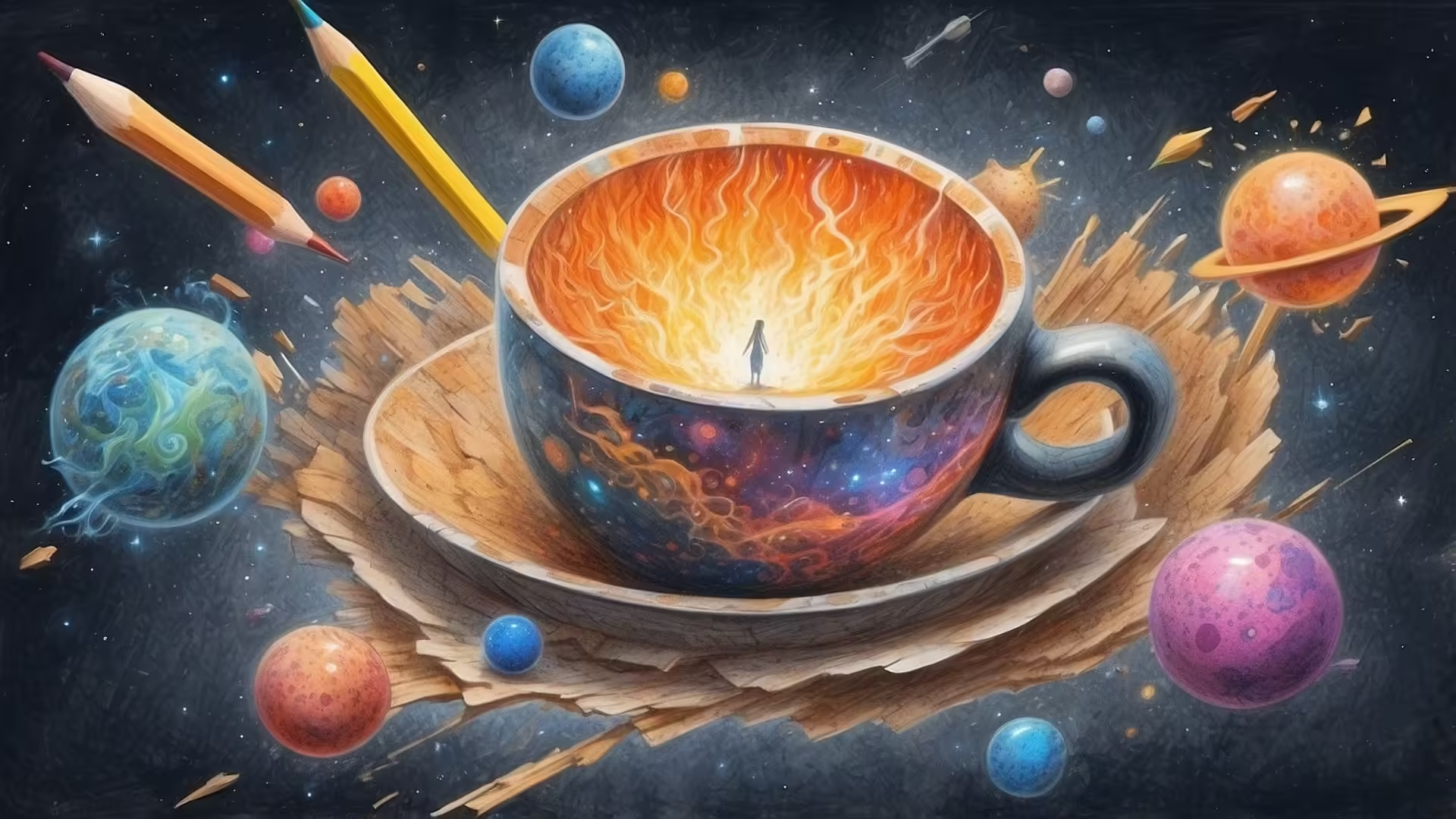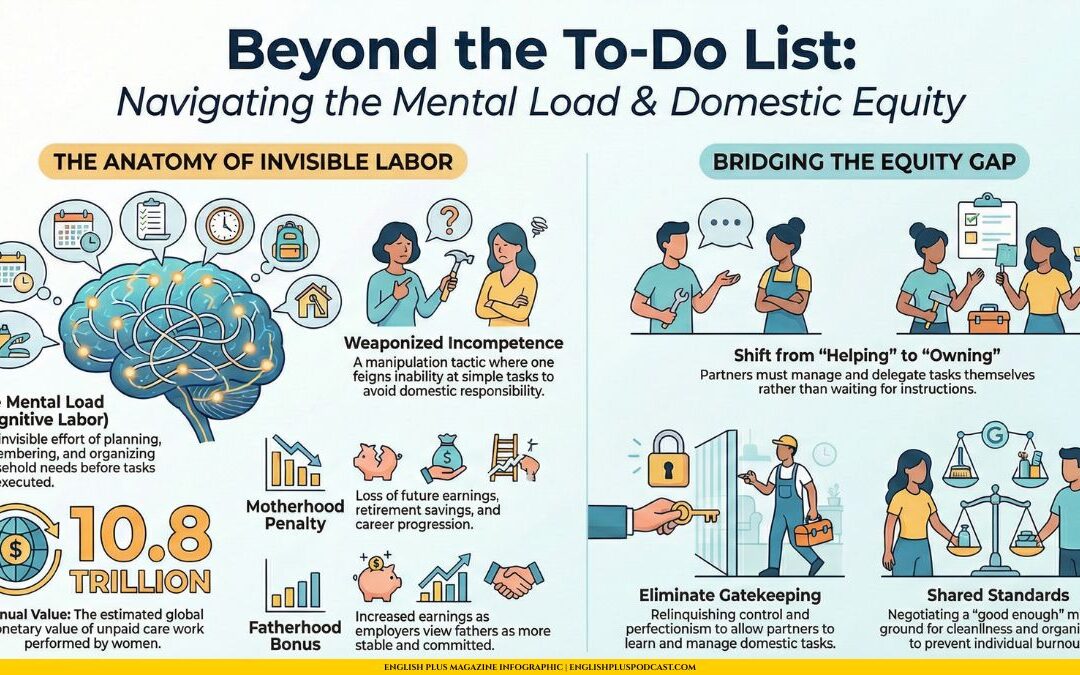The Gist
What Is Entropy?
Entropy is a concept from thermodynamics that refers to the measure of disorder or randomness in a system. In simple terms, it explains how things naturally move from order to disorder. The second law of thermodynamics tells us that in any closed system, entropy will either stay the same or increase over time—it never decreases on its own. This principle applies to everything from the cooling of a cup of coffee to the gradual decay of stars.
Entropy can be thought of as nature’s way of leveling the playing field. High-energy systems—like hot objects—tend to lose energy to their surroundings, while low-energy systems absorb it. This exchange continues until everything reaches a balanced, uniform state. For example, if you leave ice in a glass of water, the ice melts, and the water warms, eventually reaching the same temperature. The result is more disorder—no ice, no heat difference—just uniform water.
Entropy in Everyday Life
You don’t need to be a physicist to see entropy at work. Take your bedroom, for instance. No matter how many times you clean it, it seems to naturally slip back into disorder. That’s because maintaining order takes energy, and once you stop putting in that energy, things fall apart. Similarly, when you bake cookies, the heat from the oven spreads evenly through the dough, turning it into a delicious treat. But once out of the oven, the cookies gradually lose their warmth as the heat energy spreads into the air. That’s entropy in action—it’s energy becoming more evenly distributed over time.
Time itself is closely linked with entropy. The arrow of time, as physicists call it, only moves in one direction—forward—and entropy plays a huge role in that. The universe started in a state of low entropy, but as it expands, it drifts toward higher and higher levels of disorder. This is why we remember the past but can’t predict the future: the increasing entropy gives time its irreversible flow.
The Role of Entropy in the Universe
On a cosmic scale, entropy governs the behavior of galaxies, stars, and even black holes. As stars burn through their fuel, they release energy into space, increasing the universe’s overall entropy. Eventually, they run out of fuel, collapsing into white dwarfs or black holes, or exploding in supernovae. This process of stellar evolution, driven by entropy, spreads matter and energy more evenly across the universe. Some scientists predict that in the far future, the universe could reach a state known as “heat death,” where everything is spread out so evenly that no useful energy remains.
Why Does Entropy Matter to Us?
Understanding entropy isn’t just useful for scientists—it also has real-world implications. Engineers and designers account for entropy when building machines, ensuring that energy loss through heat is minimized. It also plays a role in the food industry, where understanding how energy flows helps with food preservation. On a more personal level, entropy can be a reminder to appreciate order while it lasts—because nothing stays organized forever.
Interestingly, life itself appears to be an exception to the rule of increasing disorder—at least temporarily. Living organisms maintain internal order by constantly taking in energy (think food or sunlight) and releasing waste and heat, contributing to the entropy of the environment. In a sense, life is a local pocket of order that resists the universe’s trend toward chaos, but only for a while.
Embracing Entropy
Entropy is an inescapable part of the universe, driving everything toward disorder. Whether it’s the cooling of a cup of tea, the gradual decay of stars, or the inevitable mess in your living room, entropy reminds us that change is constant and inevitable. But it also offers a unique perspective—life thrives by creating temporary order in a world ruled by chaos. Understanding entropy can help us see the beauty in both order and disorder, reminding us that nothing stays the same, and that’s perfectly okay.
Let’s Talk
So, entropy—how wild is it that the entire universe is basically moving toward a state of complete chaos? It makes you look at things differently, doesn’t it? Like, every time you clean your room or organize your desk, you’re pushing back (however briefly) against the inevitable forces of disorder. It’s kind of comforting to know that it’s not just you struggling to keep things tidy—your stuff isn’t getting messy because you’re lazy, it’s the universe doing what it does best. Makes you wonder why we even bother folding laundry.
But here’s where it gets really interesting: entropy isn’t just about messes or heat loss. It’s a reminder that everything—relationships, routines, even habits—needs constant energy to stay organized. Think about a friendship. If you don’t put in the effort to stay in touch, things naturally drift apart, right? That’s entropy in action. The same thing happens at work or with personal projects. Without energy and intention, things slip into disorder. It’s kind of like trying to keep a garden alive—if you don’t keep watering it, it’s not going to thrive.
And what about time? The connection between entropy and the arrow of time blows my mind. Time only moves in one direction, and that’s because entropy is always increasing. That’s why you can’t un-burn toast or re-freeze melted ice into the same shape it was before. Once things have changed, there’s no going back—it’s like life’s subtle way of telling us to keep moving forward. I think that’s such a beautiful, if slightly bittersweet, way to look at life. Things change, and there’s no rewind button, but maybe that’s okay. It makes those fleeting moments of order—like a perfectly peaceful morning or a spotless kitchen—feel even more special.
What really sticks with me, though, is how life itself is kind of like a rebellion against entropy. Living things fight against the natural pull toward chaos every day by consuming energy to maintain some sort of order. We eat, sleep, exercise, and repeat, all to keep things running smoothly for as long as possible. It’s a bit poetic, isn’t it? In a universe that’s always leaning toward disorder, we carve out little pockets of order—even if it’s just for a while.
Have you ever thought about those moments when everything feels like it’s falling apart—like no matter what you do, things just keep getting messier, figuratively or literally? It’s easy to feel frustrated in those moments, but maybe they’re just reminders that it’s normal for things to drift into chaos now and then. The trick is finding ways to reset. Maybe that’s cleaning up your space, organizing your thoughts, or simply taking a breather before diving back into the fray.
And it’s not just about messes or time. There’s a philosophical side to entropy too. Think about it: if change and disorder are inevitable, maybe it’s a sign to embrace imperfection. Not everything needs to be perfectly in place all the time. The mess is part of the process, and sometimes, the most meaningful things come out of those moments when things don’t go according to plan.
So, what’s something in your life right now that feels a bit like entropy has taken over? Maybe it’s a cluttered space, a project you haven’t touched in weeks, or even a habit you’ve let slip. What would it look like if you gave it just a little energy to bring it back into order? And what if—just for today—you decided to embrace a bit of the chaos instead of fighting it? It’s worth thinking about, because in the grand scheme of things, maybe the balance between order and disorder is exactly where life happens.
Let’s Learn Vocabulary in Context
Let’s explore some of the key vocabulary from our discussion about entropy and see how they fit into real life. First, there’s entropy itself—a term that might sound complex, but it really just refers to the tendency of things to move from order to disorder over time. It’s why your room gets messy if you don’t clean it or why hot coffee cools down after a while. You could say, “No matter how often I organize my desk, entropy takes over by the end of the week.” It’s a great word to describe any situation where things seem to fall apart naturally.
Another key phrase is the second law of thermodynamics, which tells us that entropy in a closed system will either stay the same or increase—it never decreases on its own. This law applies to everything from how heat spreads out to how time flows. In conversation, you might say, “According to the second law of thermodynamics, everything tends toward chaos eventually—explains why I can never keep my inbox at zero.” It’s a fun way to connect scientific principles to everyday experiences.
Arrow of time is another cool concept we touched on. It’s the idea that time moves in one direction—forward—because entropy is always increasing. It’s why events happen in sequence: you can crack an egg, but you can’t un-crack it. You might use it when reflecting on a situation: “The arrow of time keeps moving, and there’s no going back. Might as well make the most of what’s ahead.”
Let’s also revisit closed system. In science, this term refers to a system that doesn’t exchange energy or matter with its surroundings, meaning it’s isolated. It’s often used to explain how entropy works. But in everyday life, you might use it more loosely: “Our apartment is a closed system—if we don’t tidy up, things quickly spiral into chaos.”
Now, let’s talk about heat death—the theoretical future state where the universe reaches maximum entropy, meaning all energy is evenly spread out and nothing interesting happens anymore. It’s a bit gloomy, but it makes for an interesting metaphor. You could say, “I spent the whole weekend binge-watching shows and hit a state of heat death by Sunday—no energy left to do anything productive.”
Lastly, we have stellar evolution, which describes how stars change over time, burning through their fuel and eventually collapsing or exploding. It’s a powerful reminder that even stars have a life cycle. You might use it to reflect on change: “Life feels a bit like stellar evolution sometimes—you burn bright for a while, but change is inevitable.”
So, here are a couple of questions to ponder: How do you handle moments when things seem to slip into disorder—do you fight to restore order, or do you embrace the chaos? And what’s an example of entropy you’ve noticed recently, whether in your personal life or just in the world around you? It’s worth thinking about because whether we like it or not, entropy is always part of the equation.










0 Comments